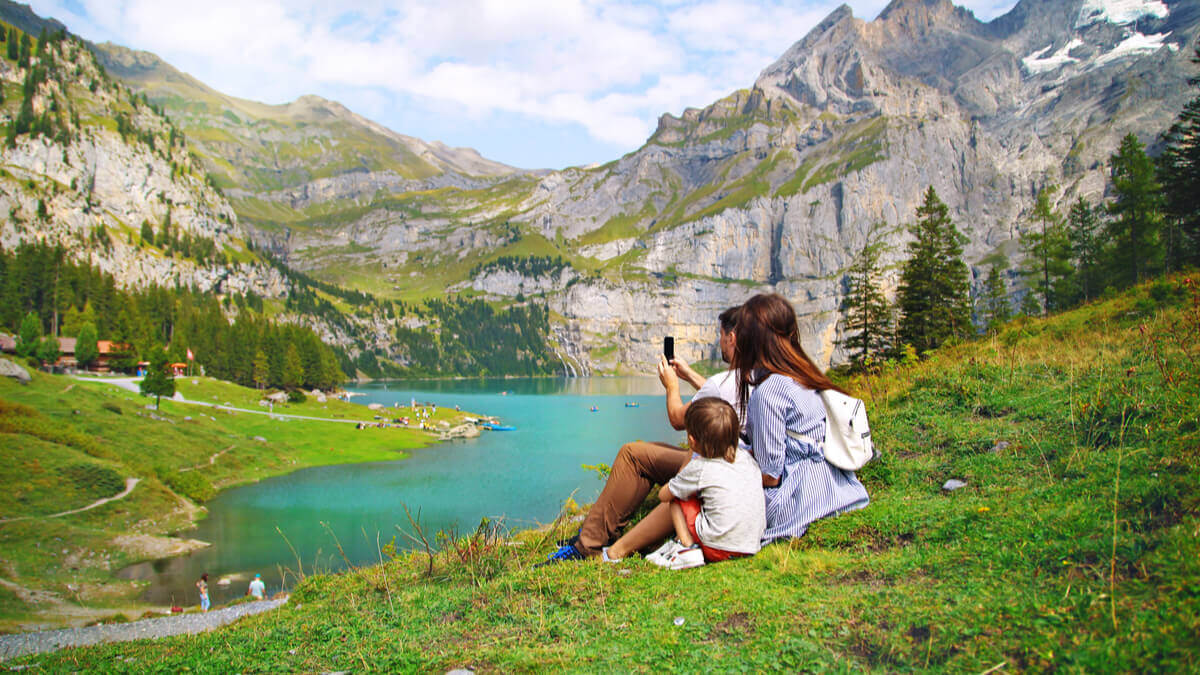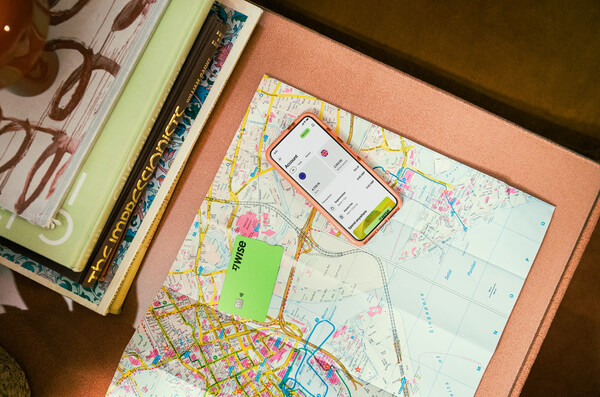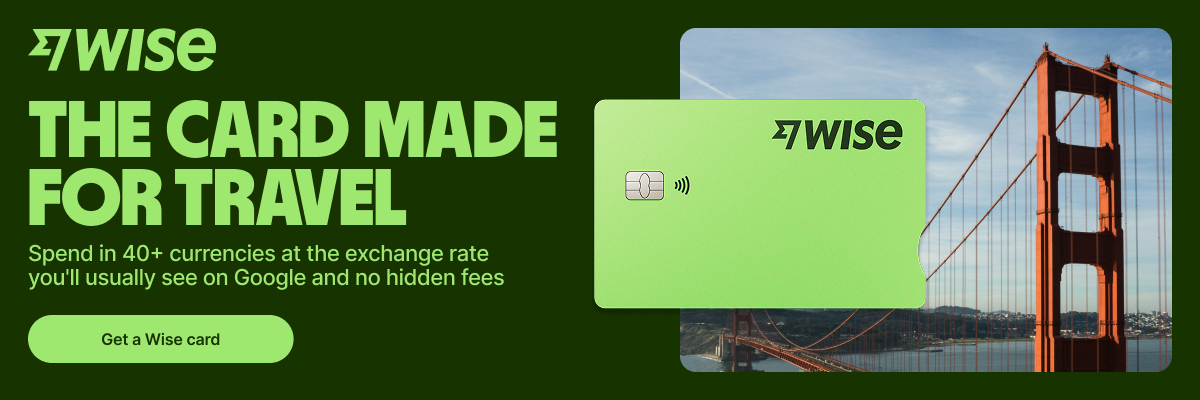
Is tap water in Switzerland safe to drink? A traveller's guide
This is intended to serve as a general guide. Always check with official sources for the latest government and health advice.
Opting for tap water is often the most eco-friendly and cost-effective way to stay hydrated while traveling. But when you're in a new country, knowing if the tap water is safe is crucial to avoid any unexpected health risks. If you're headed to Switzerland, you're likely wondering: is its tap water safe to drink?
The quick answer is yes. This guide will clearly explain why Switzerland’s tap water is safe, and detail its quality to help you prepare for your trip. We’ll also introduce the Wise card, a useful travel companion to help you save on spending during your time there.
| Table of contents |
|---|
Is tap water safe to drink in Switzerland?
Yes, tap water in Switzerland is generally safe to drink directly from the tap throughout the country according to the Federal Food Safety and Veterinary Office of Switzerland.1 It is subject to strict national regulations, such as the Foodstuffs and Utility Articles Ordinance (LMG)2 and the Ordinance on Drinking Water and Water in Publicly Accessible Baths and Showers (TBDV).3 The quality also adheres to the international WHO Guidelines for Drinking-water Quality.4
Due to the country's unique geological conditions and rigorous quality controls, Switzerland's tap water is considered among the safest and purest in the world.
Understanding Switzerland's water quality
The primary official government authorities responsible for tap water quality and regulation include the Federal Office for the Environment (FOEN) and the Federal Food Safety and Veterinary Office (BLV).5 They oversee the implementation of national ordinances that set detailed quality requirements. Local entities, including municipalities, private water suppliers, and cantonal (state) authorities, are responsible for daily operations and continuous, frequent monitoring to ensure compliance with these standards.
Sources of Switzerland's tap water
Switzerland's tap water supply predominantly comes from groundwater, which accounts for approximately 80% of the total supply, with the remainder from surface water such as lakes and springs.5 This high proportion of naturally pure groundwater allows for minimal treatment in many areas.⁵ Treatment processes often involve only disinfection methods like UV or ozone, with minimal chlorination required.
Mineral content and taste of Switzerland's tap water
Tap water hardness in Switzerland varies significantly depending on the regional geology and the composition of local aquifers. According to the Federal Office for the Environment (FOEN/BAFU), groundwater constituents such as calcium and magnesium, the key minerals determining hardness, are directly influenced by the surrounding rock and soil.6 This means that some regions, particularly mountainous areas, may have softer water, while others show higher mineral content and therefore harder water. Although the federal government does not publish specific hardness ranges in mg/L CaCO₃, these variations are well documented by local utilities and reflect Switzerland’s diverse geological conditions.
The general taste profile is described as neutral, fresh, and clean, with a chlorine taste rarely noticeable. This can be attributed to the high quality of the source water and the minimal treatment required.
Heading to Switzerland? Maximise your CHF spending with the Wise Card
Staying hydrated is key to a great trip, and so is managing your travel budget wisely in Switzerland. The Wise card is a simple way to save when you're spending internationally, be it on bottled water, food or shopping. You can spend in 150+ countries, including Switzerland, at mid-market rate — basically the rate you see on Google. With no foreign transaction fees and low, transparent pricing, Wise usually gives you the best value for your money.

Simply create a Wise account for free, order a card and top-up to get started. Having a physical Wise card allows you to make chip and pin payments, as well as make some free ATM withdrawals each month for when you're in Switzerland. You can get digital cards and add to your Google or Apple Pay wallet for instant use. Spend directly with the Wise account and let auto-conversion do the trick or convert in advance to CHF. You can hold and exchange 40+ currencies in your Wise account and spend the currencies you hold for free.
Wherever your travel takes you, the Wise card makes spending money abroad cheaper and easier.
This general advice does not take into account your objectives, financial circumstances or needs and you should consider if it is appropriate for you.
Please see Terms of Use and product availability for your region or visit Wise Fees & Pricing for the most up to date pricing and fee information.
FAQs
Do I need to boil tap water in Switzerland to make it safe?
No, boiling tap water in Switzerland is not necessary. It is of excellent quality and safe to drink directly from the tap, as it is subject to strict regulations¹ and continuous monitoring.²
How does the taste and quality of tap water differ within Switzerland?
The taste and quality can vary based on the local geology and water source. Water is generally softer in mountainous regions and harder in areas with different rock types, which can influence its mineral taste.6
Is the ice served in restaurants and bars in Switzerland safe to consume?
Yes, the ice served in restaurants and bars is generally safe to consume, as it is made from the same public water supply that is deemed safe to drink.1
Why do some people in Switzerland use water filters if the tap water is safe?
Some people in Switzerland may use water filters primarily for personal taste preference due to regional variations in mineral content, although the water is safe to drink without them.
Sources:
- Federal Food Safety and Veterinary Office (FSVO) - Safe Drinking Water
- Federal Act on Foodstuffs and Utility Articles (Foodstuffs Act, FSA)
- Verordnung des EDI über Trinkwasser sowie Wasser in öffentlich zugänglichen Bädern und Duschanlagen (TBDV)
- UNECE - Working Group on Water and Health
- Swiss Report under the Protocol on Water and Health 2022-2024 (PDF)
- Federal Office for the Environment (FOEN) - Groundwater Quality
*Please see terms of use and product availability for your region or visit Wise fees and pricing for the most up to date pricing and fee information.
This publication is provided for general information purposes and does not constitute legal, tax or other professional advice from Wise Payments Limited or its subsidiaries and its affiliates, and it is not intended as a substitute for obtaining advice from a financial advisor or any other professional.
We make no representations, warranties or guarantees, whether expressed or implied, that the content in the publication is accurate, complete or up to date.


